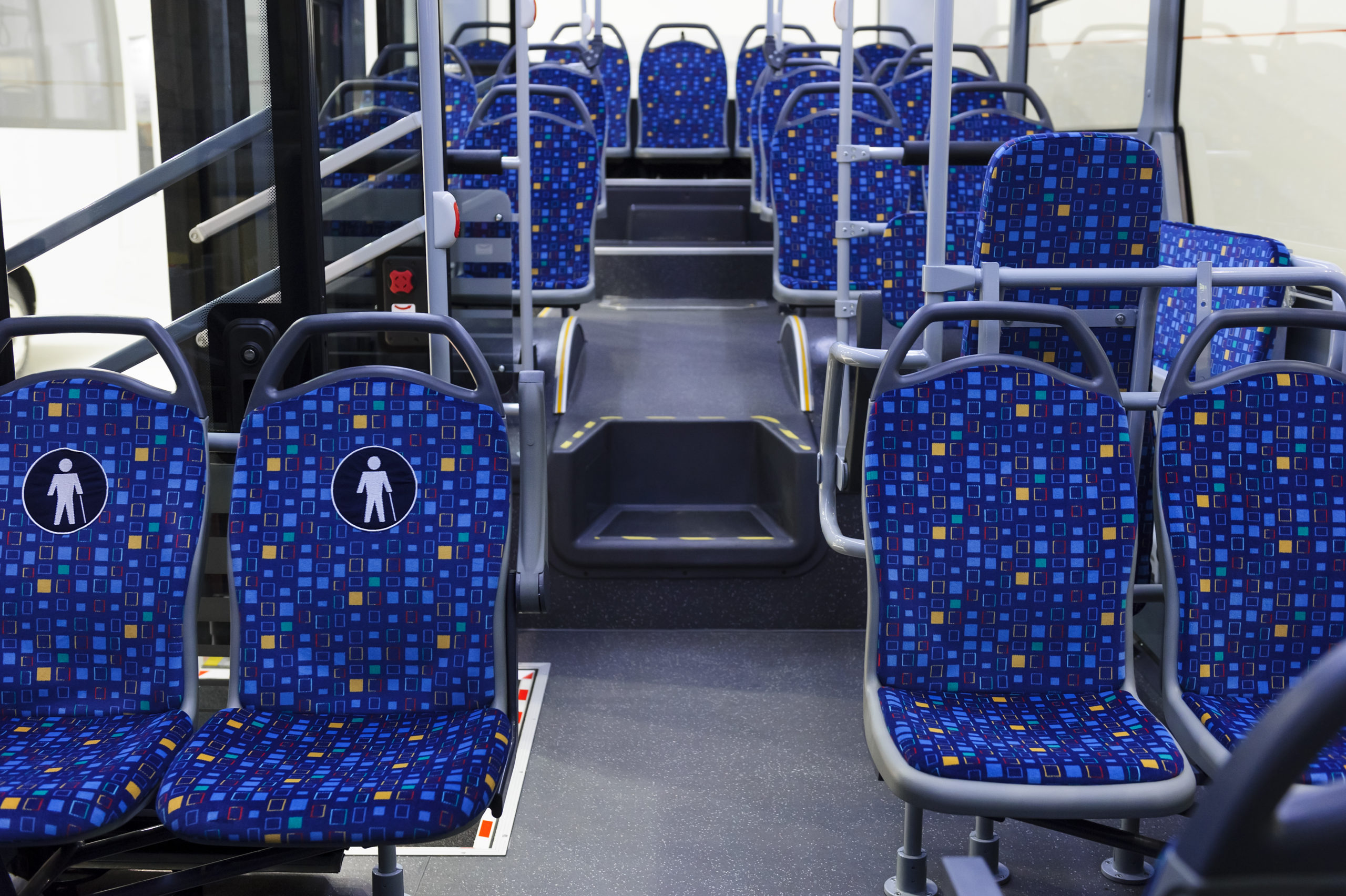Denver becomes latest city to upgrade seating to vinyl upholstery.
In 1994, Denver debuted its first light rail transportation system, featuring upholstered fabric seating. Now, nearly 30 years later, the Regional Transportation District-Denver (RTD), is upgrading the interiors of light rail cars with Morbern’s (n)Motion!™ vinyl upholstery.
After listening to customer and employee feedback regarding fade, wear and stains on the trains’ fabric seats, RTD decided vinyl was the answer (video). With fabric, it takes one employee an entire eight-hour shift to shampoo all 48 seats in a train car, while vinyl allows for easy wipe-down cleaning. The rail company says the new vinyl seating creates a more welcoming transit environment: it’s brightly colored, easy to clean and stain resistant.
The custom vinyl pattern was created in a collaboration between Morbern’s design team and an RTD graphic designer using the transit system’s colors, and voted on by RTD employees.
The first rail cars with the new seat covers went into service on Nov. 14, and the conversion is expected to take about three years. The agency has committed to completing one car per week until RTD’s whole fleet of about 200 light rail vehicles is finished.
Denver isn’t alone. In July of 2018, the Los Angeles County Metro system switched its seating from fabric to vinyl. Citing years of consumer complaints, exorbitant dry cleaning bills and millions of dollars spent on fabric replacement, the L.A. Metro decided to change its subway seating from fabric to Morbern’s vinyl. Savings and sanitation were the main drivers. Everything from food to bodily fluids and insects was found in the seats.
About (n)Motion!™
Morbern’s (n)Motion!™ is the digital print base specifically designed for the mass transit industry. It’s a blank slate that puts the designer in the driver’ seat. Any design can be printed on this industry-specific base vinyl, which adheres to FAR Appendix F Part 25 and passes the Ultra Low Smoke (ULS) test and the Toxic Gas Generation test. Its hard-wearing abrasion resistance stands up to mass amounts of traffic and it has a cold crack rating of -25 degrees, making it a solid choice for colder climes like Denver.




